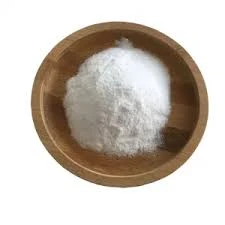Well Treatment Chemicals Enhancing Efficiency and Productivity in Oil and Gas
In the oil and gas industry, well treatment chemicals play a crucial role in optimizing production efficiency and enhancing the performance of wells. The extraction of hydrocarbons is a complex process that often encounters various challenges, including scaling, corrosion, and formation damage. As a solution, well treatment chemicals have been developed to address these challenges, ensuring that wells operate at their maximum potential. This article delves into the types, applications, and benefits of well treatment chemicals, providing an overview of their significance in modern oil and gas operations.
Types of Well Treatment Chemicals
Well treatment chemicals can be broadly categorized into several types, each designed for specific applications. Some of the most common categories include
1. Acids Hydrochloric acid (HCl) and other acid solutions are frequently used for stimulation and maintenance. Acidizing processes help dissolve carbonate formations, allowing oil and gas to flow more freely. This is particularly beneficial in limestone and dolomite reservoirs, where scaling can impede production.
2. Biocides To combat microbial activity that can lead to biofouling and souring of well fluids, biocides are employed. These chemicals effectively eliminate harmful bacteria, ensuring that production remains unaffected by microbial-induced corrosion and other related issues.
3. Scale Inhibitors The formation of scale in wells can block the flow of hydrocarbons, leading to reduced productivity. Scale inhibitors are used to prevent the precipitation of minerals like calcium carbonate and barium sulfate, thereby maintaining optimal flow rates and reducing downtime.
4. Corrosion Inhibitors Corrosion can significantly affect the longevity of production equipment and infrastructure. Corrosion inhibitors are chemical compounds that form protective layers on metal surfaces, reducing the likelihood of rust and degradation. This is essential for maintaining equipment integrity and avoiding costly repairs.
5. Surfactants Used primarily in enhanced oil recovery (EOR) processes, surfactants lower the surface tension between oil and water, improving oil mobilization and recovery rates. These chemicals are particularly useful in heavy oil production, where traditional methods may fall short.
Applications in Oil and Gas Operations
The application of well treatment chemicals is vital throughout various stages of oil and gas production.
well treatment chemicals

- Well Stimulation Acids and surfactants are commonly employed to enhance well productivity. The acidizing process stimulates the well by allowing improved flow paths for hydrocarbons.
- Maintenance Regular treatment with corrosion inhibitors and scale inhibitors helps to maintain well productivity by mitigating the risks associated with scaling and corrosion over time
.- Production Optimization The use of biocides and other treatment chemicals can optimize production rates, prolong the lifespan of wells, and reduce the overall operational costs associated with remediation and repair.
Benefits of Well Treatment Chemicals
The use of well treatment chemicals offers numerous benefits to oil and gas operators. These include
- Increased Production Rates By addressing issues such as scaling and corrosion, well treatment chemicals can significantly boost production rates, leading to higher revenue for operators.
- Cost Efficiency Preventing damage through the application of these chemicals can reduce maintenance costs and extend the life of equipment, yielding long-term savings.
- Environmental Protection Utilizing biocides and environmentally-friendly chemicals can help mitigate adverse environmental impacts, ensuring compliance with regulatory standards.
- Enhanced Recovery Surfactants and polymer solutions improve the efficiency of recovery processes, enabling operators to extract more hydrocarbons from existing reservoirs.
Conclusion
In conclusion, well treatment chemicals are indispensable tools in the oil and gas industry, facilitating efficient extraction and optimizing production while reducing operational costs. As technology continues to advance, the development of new and improved treatment chemicals will further enhance the ability of operators to tackle the challenges inherent in hydrocarbon production. By investing in these chemicals, companies can ensure the longevity and productivity of their wells, thereby securing a competitive advantage in a constantly evolving market.

